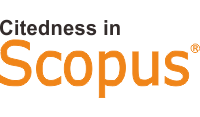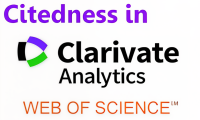Strategic Interventions of Zakat Institution in Empowering MSEs: The Case of BAZNAS in Bone Regency
DOI:
https://doi.org/10.46870/milkiyah.v4i1.1527Keywords:
BAZNAS, MSE, Mustahik, ZakatAbstract
Productive zakat is an important part of Islamic social finance that aims to help reduce poverty by supporting micro and small businesses. Unlike traditional charity, productive zakat gives business capital to help zakat recipients (Mustahik) become independent. In Indonesia, especially in rural areas, this type of support plays a key role in improving people’s economic conditions. This study focuses on how a zakat institution attempts to help micro and small businesses through its productive zakat programmes. The research employed a qualitative method using a case study approach conducted at BAZNAS in Bone Regency, Indonesia. Data were collected through interviews and field observation involving BAZNAS staff, Mustahik, and leaders of local MSEs, and related document review. The results show that the mentoring provided is mostly limited to short verbal guidance when the funds are first given. There are no structured trainings and regular follow-ups. These issues are compounded by a lack of staff, long distances between locations, and no clear way to measure progress. However, we find that there are also chances to improve the programme, such as the use of digital tools, building partnerships, and strengthening local MSE organisations. This study demonstrates that mentoring needs to be more measurable so that productive zakat truly helps people become economically independent. We also offer insights from this study for improving zakat programmes in other rural areas
References
Akbar, Muh., & Pakanna, M. (2023). The Role of the Family Hope Program (PKH) in Enhancing Family Literacy and Financial Management from the Perspective of Islamic Economics. Kontigensi: Jurnal Ilmiah Manajemen, 11(1), 362–369. https://doi.org/10.56457/jimk.v 11i1.416
Ahyani, H., Lousada, S. A. N., Solehudin, E., Azmi, N., Hamzah, I., & Suganda, A. (2025). Building Progressive Islamic Law in Zakat Distribution to Support Sustainable Development Goals: A Maqasid Sharia Perspective in Indonesia. Journal of Lifestyle and SDGs Review, 5(2), e04071-e04071. https://doi.org/10.47172/2965-730X.SDGsReview.v5.n02.pe04071
Alwi, A., Sari, M. D., Hamat, Z., & Doktoralina, C. M. (2019). Improving the Objective Well Being of Productive Zakat Recipients by Applying Islamic Micro Finance in Baitul Mal Aceh, Indonesia. Journal of Economics and Business, 2(2). https://doi.org/10.31014/aior.1992.02.02.82
Arifqi, Moh. M., Sofyan, A., Mayaningsih, D., & Fitriyah, R. (2024). Productive Zakat Model: Economic Empowerment for Post-Covid-19 Recovery in Indonesia. Al-Muamalat Jurnal Ekonomi Syariah, 11(1), 75–85. https://doi.org/10.15575/am.v11i1.33518
Ashari, A., Fatwati, S. R., Hasanah, S., Juwairiyah, S., Rudi, R., & Utama, A. P. (2023). BAZNAS Contribution Through Productive Zakat Program to the Economy Poor Society. Majapahit Journal of Islamic Finance and Management, 3(1), 1–14. https://doi.org/10.31538/mjifm.v3i1.30
Bahri, E. S., & Oktaviani, R. (2018). Zakat Produktif Sebagai Modal Kerja Usaha Mikro. Perisai : Islamic Banking and Finance Journal, 2(2), 101–120. https://doi.org/10.21070/perisai.v2i2.1686
Basit, A., & Rosidayanti, R. (2020). Dampak Zakat Produktif Dalam Penguatan Modal Dan Kinerja UMKM Pada Kelompok Usaha Mandiri Di BAZNAS Provinsi NTB. Welfare Jurnal Ilmu Ekonomi, 1(2), 150–159. https://doi.org/10.37058/wlfr.v1i2.2149
Chambers, R., & Conway, G. (1992). Sustainable rural livelihoods: practical concepts for the 21st century. The Institute of Development Studies and Partner Organisations. https://hdl.handle.net/20.500.12413/775
Cynthiasari, V., & M. Nawawi, Z. (2022). Peran UPZ dalam meningkatkan pengumpulan ZIS BAZNAS kota tebing tinggi. Jurnal Riset Pendidikan Ekonomi, 7(2), 160–167. https://doi.org/10.21067/jrpe.v7i2.6811
Desvianti, D., Gusriyani, M., Hijriyati, S., & Hasan, Z. (2025). Analysis of the Implementation of Zakat as a Fiscal Instrument in Supporting Islamic Economic Development in Indonesia. al-Afkar, Journal For Islamic Studies, 8(2), 634-649. https://doi.org/10.31943/afkarjournal.v8i2.1402
Firdaus, F. A., Zaki, I., & Herianingrum, S. (2023). The Role Of Generation Z Through Online Platform in Optimizing of Zakat Literacy and Fundraising. AZKA International Journal of Zakat & Social Finance, 13–22. https://doi.org/https://doi.org/10.51377/azjaf.vol4no1.118
Hamidah, R. A., Alam, A., Anggraeni, A., & Nizam, R. S. (2021). An Assessment of Zakat Contributions for Productive Purposes to Empower the Mustahik Economy in the Face of the Covid-19 Pandemic. ZISWAF: JURNAL ZAKAT DAN WAKAF, 8(2), 154-167. https://doi.org/10.21043/ziswaf.v8i2.11242
Hutabarat, W., Syahnur, S., & Dawood, T. C. (2023). How Population, Economic, Inequality and Unemployment Contribute Affect Indonesian’s Poverty. International Journal of Advances in Social Sciences and Humanities, 2(1), 8–14. https://doi.org/10.56225/ijassh.v2i1.92
Judijanto, L. (2024). Implementation of Zakat Law in Empowering the Islamic Community’s Economy in Indonesia. The Easta Journal Law and Human Rights, 2(03), 136–146. https://doi.org/10.58812/eslhr.v2i03.281
Kamaruddin, A. M., Adawiyah, R., Tsalis, K. N., & Abbas, A. (2024). Implementation of Maqasid Al-Syariah in Empowering the Zakah Community Development Program. Jurnal Ilmiah Mahasiswa Raushan Fikr, 13(1), 190–201. https://doi.org/10.24090/jimrf.v13i1.11291
Kasri, R. A., & Yuniar, A. M. (2021). Determinants of digital zakat payments: lessons from Indonesian experience. Journal of Islamic Accounting and Business Research, 12(3), 362–379. https://doi.org/10.56457/jimk.v11i1.416
Khoiri, N., Harahap, I., & Latif, M. (2022). Maqashid al-Syari’ah al-Syatibi: In The Paradigm Muslim Society as Methodology of Zakat Law. FITRAH: Jurnal Kajian Ilmu-ilmu Keislaman, 8(1), 175-188. https://doi.org/10.24952/fitrah.v8i1.5528
Mathie, A., & Cunningham, G. (2003). From clients to citizens: Asset-based community development as a strategy for community-driven development. Development in Practice, 13(5), 474–486. https://doi.org/10.1080/0961452032000125857
Miles, M. B., Huberman, A. M., & Saldaña, J. (2014). Qualitative data analysis: A methods sourcebook. London: Sage Publications.
Mutmainah, S. (2023). Optimization of Productive Zakat as an Effort to Empower the Economy of the People. Empowering Humanity, 1(1), 38–53. https://doi.org/10.58765/emhum.v1i1.107
Naeem, M., Ozuem, W., Howell, K., & Ranfagni, S. (2023). A Step-by-Step Process of Thematic Analysis to Develop a Conceptual Model in Qualitative Research. International Journal of Qualitative Methods, 22. https://doi.org/10.1177/16094069231205789
Noviarita, H., Indahsari, L., & Abdul Chalid, M. H. (2024). Islamic Philanthropy Literacy in Improving Welfare and Sustainable Economic Growth in Lampung Province. KnE Social Sciences. 460-470. https://doi.org/10.18502/kss.v9i12.15873
Pertiwi, R. S., Herianingrum, S., & Kusuma, A. (2020). Zakat and Youth Empowerment. International Journal of Zakat, 5(2), 51–66. https://doi.org/10.37706/ijaz.v5i2.224
Rukiah, R., Frihatni, A. A., Abbas, A., & Uddin, M. N. (2024). The Prospect of Zakat Growth in Indonesia and its Effect on Economic Growth in Indonesia. ZISWAF: Jurnal Zakat dan Wakaf, 11(2), 126-142. http://dx.doi.org/10.21043/ziswaf.v11i2.28498
Saedi, S., Chotib, M., & Masrohatin, S. (2024). Analysis of the Impact of Productive Zakat in Empowering Mustahiq’s Economic Welfare in Jember Regency. Jurnal Syntax Admiration, 5(3), 973–983. https://doi.org/10.46799/jsa.v5i3.1076
Sahman, Z., Rizka, Affandi, M. T., Salsabila, A., & Muthoifin, M. (2023). Productive Zakat Distribution of Building Village Model to Increase Mustahiq Income. Profetika Jurnal Studi Islam, 24(02), 292–303. https://doi.org/10.23917/profetika.v24i02.3171
Siregar, D. A., Siregar, S., & Marliyah, M. (2023). Productive Zakat as An Alternative Islamic Social Financial Instrument In Community Economic Empowerment Reflection Of The Covid-19 Era. Jurnal Indonesia Sosial Teknologi, 4(12), 2499–2509. https://doi.org/10.59141/jist.v4i12.848
Sobana, D. H., & Wardiyah, M. L. (2018). Membangun Kemitraan Universitas Dengan Pemerintah Daerah Dalam Pengembangan Ekonomi Kreatif Berbasis Syari’ah Di Jawa Barat. Al-Muamalat: Jurnal Ekonomi Syariah, 5(2). https://doi.org/https://doi.org/10.15575/am.v5i2.5164
Syamsuri, S., & Adillah, E. R. (2024). Zakat Fundraising Unit - Mosque Collaboration as Zakat Fund Manager: Strategy for Increasing Zakat Fund Collection. International Journal of Islamic Economics, 6(01), 44. https://doi.org/https://doi.org/10.31004/innovative.v4i5.15421
Tenriwaru, Said, M. A., & Budiandriani. (2022). Management Accountability of Zakat and Its Role to Empower Creative Economy. International Journal of Religious and Cultural Studies, 4(2), 191-198. https://doi.org/10.34199/ijracs.2022.10.07
Umuri, K. (2023). Pemanfaatan Dana Zakat Produktif Dan Dampaknya Terhadap Pendapatan Mustahik. Bidayah Studi Ilmu-Ilmu Keislaman, 14(1), 20–30. https://doi.org/10.47498/bidayah.v14i1.1257
Wafia, N. U. (2021). Pengaruh Pemanfaatan Zakat Produktif Terhadap Peningkatan Mustahik Baznas Kabupaten Bone. Al Hisab: Jurnal Ekonomi Syariah, 2(1), 1–16. https://doi.org/10.59755/alhisab.v2i1.77
Widiastuti, T., Auwalin, I., Rani, L. N., & Ubaidillah Al Mustofa, M. (2021). A mediating effect of business growth on zakat empowerment program and mustahiq’s welfare. Cogent Business & Management, 8(1). https://doi.org/10.1080/23311975.2021.1882039
Zaimah, N. R., & Zaman, A. R. B. (2024). How did its Charity Go? The Practice of Zakat Management in e-Commerce Platforms. Milkiyah: Jurnal Hukum Ekonomi Syariah, 3(1), 17–30. https://doi.org/10.46870/milkiyah.v3i1.758
Zain, R. H., Afira, R., Awal, H., & Yani, Z. (2025). Pelatihan Pemanfaatan Teknologi Digital Untuk Meningkatkan Keamanan Dan Pertumbuhan Umkm Di Era Transformasi Digital. Community Development Journal : Jurnal Pengabdian Masyarakat, 6(1), 166–171. https://doi.org/10.31004/cdj.v6i1.41392
Zami, M. T. Z., & Nurhaida, H. S. (2025). Establishing Criteria for Zakat Collectors in the Management of Zakat Fitrah Funds. International Journal of Social Science and Religion (IJSSR), 6 (1), 21-36. https://doi.org/10.53639/ijssr.v6i1.291
Downloads
Published
How to Cite
Issue
Section
License
Copyright (c) 2025 Ahmad Faidh Annur Ramli, Jaenudin, Vinna Sri Yuniarti, Syena Idfilandu, Agi Attaubah Hidayat

This work is licensed under a Creative Commons Attribution-ShareAlike 4.0 International License.

















